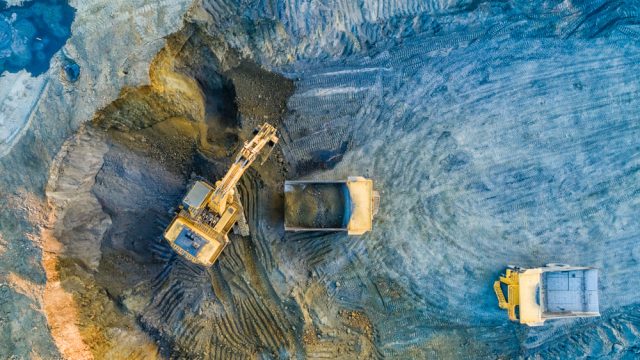
As the U.S.–China accord reshapes global trade, the European Union prepares its “ResourceEu” plan to secure rare earths and chips — redefining its economic sovereignty in a new geo-economic era.
The global economy is entering a new and turbulent phase, and Europe is right at its center. The trade accord signed between the United States and China has set off alarm bells in Brussels, where policymakers fear becoming collateral damage in an intensifying rivalry between the world’s two largest powers. But the European Union’s response is neither passive nor reactive. Instead, Brussels is moving decisively to reduce strategic dependence on Beijing — a move that could redefine its industrial and geopolitical role for decades to come.
European Trade Commissioner Maroš Šefčovič captured the prevailing sentiment during a high-level appearance in Rome this week. “We must prepare for a hard, difficult world where geo-economics and geopolitics are deeply intertwined,” he warned, following a call with U.S. Secretary Howard Lutnick about the potential fallout of the Washington–Beijing deal. The agreement, which affects both the rare earth market and the supply of fossil fuels, underscores how exposed Europe remains to global power shifts
After his address in the Italian Senate, Šefčovič met with Italian Prime Minister Giorgia Meloni to discuss “the Union’s economic security,” as well as the ongoing trade talks with the Mercosur bloc. His visit came at a crucial time: across European capitals, concerns are mounting over the continent’s heavy reliance on Chinese imports for critical minerals and semiconductor components.
From Collateral Victim to Strategic Actor
In recent weeks, European commissioners under Ursula von der Leyen have debated whether the EU risks becoming a “collateral victim” of the U.S.–China trade war. Šefčovič has rejected that framing outright. Europe, he argued, is not a bystander but an objective of Chinese economic policy — a target of strategic influence and trade pressure. For that reason, Brussels must engage Beijing directly and on its own terms, regardless of the shifting dynamics between Washington and Beijing.
This marks a fundamental evolution in Europe’s global stance. For decades, the EU relied on open markets and multilateral institutions to ensure stability. Today, however, the bloc is building a more assertive economic identity — one capable of protecting European interests in a world defined by scarcity, competition, and strategic interdependence.
While Washington and Beijing negotiate exemptions and export rules, Europe has quietly been developing its own comprehensive strategy. The upcoming ResourceEu plan, expected within weeks, aims to reduce dependency on China for critical raw materials and semiconductor components, while diversifying supply chains and boosting domestic production capacity.
The Rare Earth Challenge
The stakes could not be higher. Rare earth minerals — essential for everything from electric vehicles to wind turbines and smartphones — are dominated by Chinese suppliers. Brussels had feared that the new U.S.–China deal would leave Europe further exposed, granting Washington special exemptions from Beijing’s export restrictions. However, early reports suggest that China has agreed to suspend the introduction of new export limits “for the entire world,” not just the United States.
For Brussels, that pause is a welcome relief, albeit temporary. The moratorium is expected to last just one year, and it remains unclear whether it will apply to all recent restrictions, including those enacted earlier in 2024. The European Commission has therefore sought direct clarification from Chinese officials, who are expected to meet EU representatives for renewed talks in Brussels.
Šefčovič acknowledged that the partnership with China is becoming “increasingly challenging.” Negotiations with his Chinese counterpart, Commerce Minister Wang Wentao, have focused on restoring access to “legacy chips” and easing export blocks that threaten Europe’s manufacturing base. The issue is far from abstract: every car built in Europe requires roughly 1,000 chips, each made of more than 500 components. Disruptions in this chain could paralyze entire industries.
Building Europe’s Economic Security
The Commission’s response combines immediate diplomacy with long-term structural reform. On one front, Brussels is pressing China to lift the export ban on Nexperia chips — a move that could prevent shutdowns in European automotive factories. On another, the EU is accelerating investment in alternative sources of critical minerals, recycling capacity, and technological self-sufficiency. The ResourceEu plan will likely complement the EU Chips Act and the Critical Raw Materials Act, forming the backbone of Europe’s new industrial resilience strategy.
This dual-track approach reflects a broader European awakening to the realities of 21st-century geo-economics. The era of unregulated globalization is over; what replaces it is a more fragmented but also more self-reliant system. Europe’s challenge — and opportunity — lies in using this moment to strengthen internal unity and technological capacity, rather than retreat into protectionism.
A New European Consensus
While member states may differ in their pace and priorities, a new consensus is forming around the need for strategic autonomy. France and Germany advocate for stronger domestic production, while Italy — through constructive engagement and balanced diplomacy — pushes for dialogue with China alongside diversification efforts. The Commission’s coordinated approach marks a turning point: Europe is no longer content to react to others’ decisions; it is shaping its own destiny in the global economy.
In the months ahead, the success of ResourceEu will depend on political will and collective discipline. Europe must turn short-term relief — like the temporary Chinese export pause — into long-term independence. That means mobilizing investment, securing alternative partnerships in Latin America and Africa, and integrating innovation across the continent’s industrial landscape.
The global trade landscape may indeed be “hard and difficult,” as Šefčovič warned, but Europe’s response shows growing maturity and determination. By reasserting control over its critical resources and technology supply chains, the European Union is not just adapting to a changing world — it is defining what economic sovereignty means in the age of geopolitical competition.



 Subscribe
Subscribe